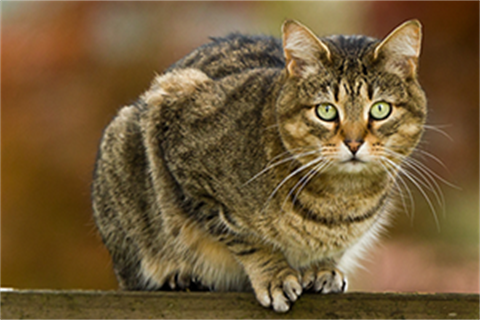Northern Rivers Joint Organisation calls for control of roaming cats
Published on 18 January 2024

Clarence Valley Council is a member of the Northern Regional Joint Organisation which is requesting changes in the law so that councils can restrict the free roaming of cats where necessary.
The Northern Rivers Joint Organisation (NRJO), under the guidance of Chair Sharon Cadwallader, is spearheading a comprehensive advocacy effort to address the detrimental impact of roaming domestic cats on wildlife and enhance the health and welfare of companion animals in New South Wales.
A recent study estimates that one third of Australian households have one or more pet cats (Biodiversity Council 2023). This forms a national total of 5.3 million domestic cats of which 3.7 million are not contained and have the freedom to hunt native wildlife in residential areas and surrounding bushland.
The Biodiversity Council study states that roaming pet cats in Australia kill approximately 546 million animals per year. The NRJO believes that council programs and by-laws can contribute towards the reduction of these numbers.
The NRJO therefore proposes a number of reforms and initiatives which, if implemented, would achieve the effective control of roaming pet cats. These include:
- Amendment of Companion Animals Act 1998: The NRJO calls for amendments to the Companion Animals Act 1998 and associated Companion Animals Regulation 2018, empowering local governments to enforce the containment of pet cats on their owner's property. The proposed containment laws will include phase-in periods and community support and monitoring frameworks.
- State-wide Program Funding: A state-wide program is recommended to support local governments in enforcing compliance with the amended Companion Animals Act 1998. The NRJO advocates for funding allocation to increase the number of rangers available to undertake compliance activities.
- Streamlined Pet Identification and Registration: The NRJO proposes the consolidation of pet identification and registration processes into a single, user-friendly system managed by Service NSW. This system should be easily accessible through self-service functions within the Service NSW app.
- Mandatory Desexing Laws: The NRJO recommends transitioning to mandatory desexing laws, aligning with successful approaches in Western Australia, Tasmania, Australian Capital Territory, South Australia, and Victoria.
- State-wide Grant Program: A $10 million, three-year state-wide grant program is proposed to support councils in implementing domestic cat containment policies and responsible cat ownership programs. The program will encompass identification and registration measures, large-scale desexing and microchipping programs, and effective education initiatives to encourage responsible cat ownership.
- 'Safe Cat, Safe Wildlife' Campaign: The NRJO advocates for the implementation of a state-wide 'Safe Cat, Safe Wildlife' campaign. This campaign will include the development of a central, state-wide online platform, created in consultation with councils, relevant agencies, and animal welfare bodies, to make responsible pet ownership information easily accessible to the public.
Chair Sharon Cadwallader states, "The NRJO is committed to creating a healthier and safer environment for both our wildlife and companion animals. We believe that these proposed reforms, coupled with robust enforcement and educational initiatives, will contribute significantly to the well-being of our communities and the preservation of our unique biodiversity."
The NRJO invites all stakeholders, including local councils, animal welfare organizations, and concerned citizens, to join hands in supporting these crucial initiatives.
For media inquiries, please contact:
Phillip Rudd
Executive Officer | Northern Rivers Joint Organisation
admin@northernriversjo.nsw.gov.au
About the Northern Rivers Joint Organisation (NRJO):
The NRJO is a collaborative effort of 7 local councils in the Northern Rivers region, working together to address regional issues and enhance the overall well-being of the community.